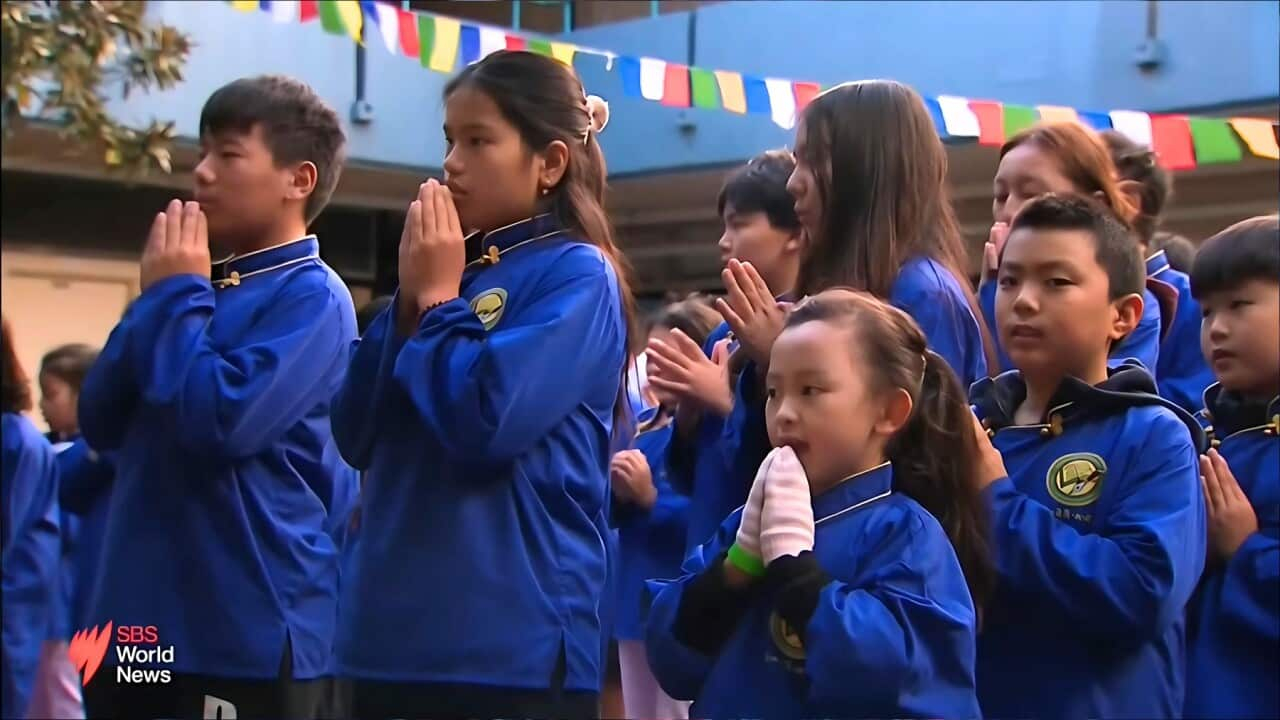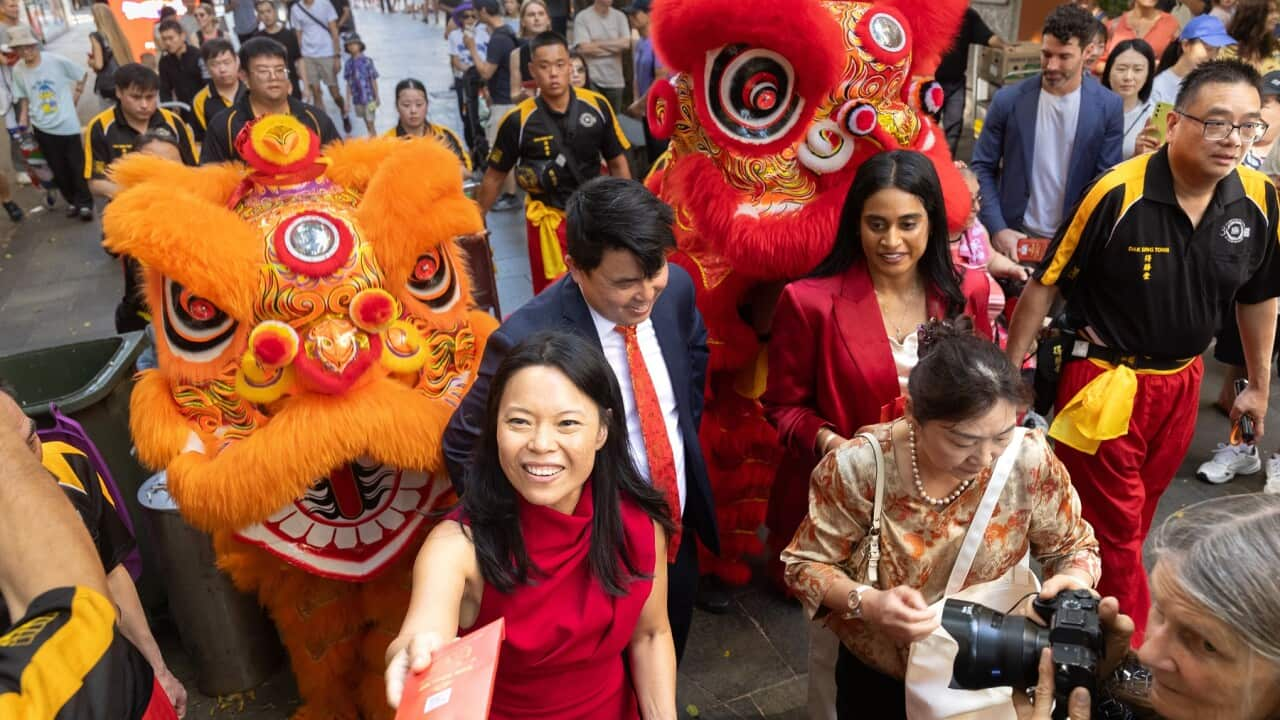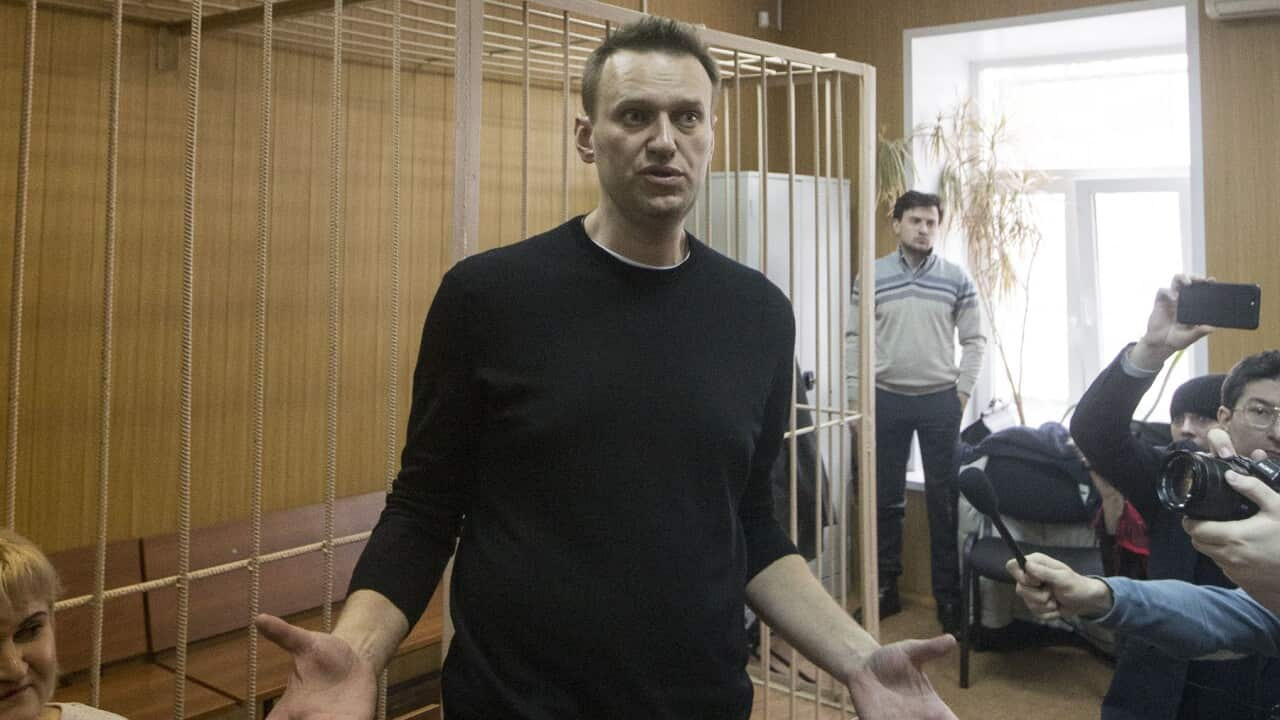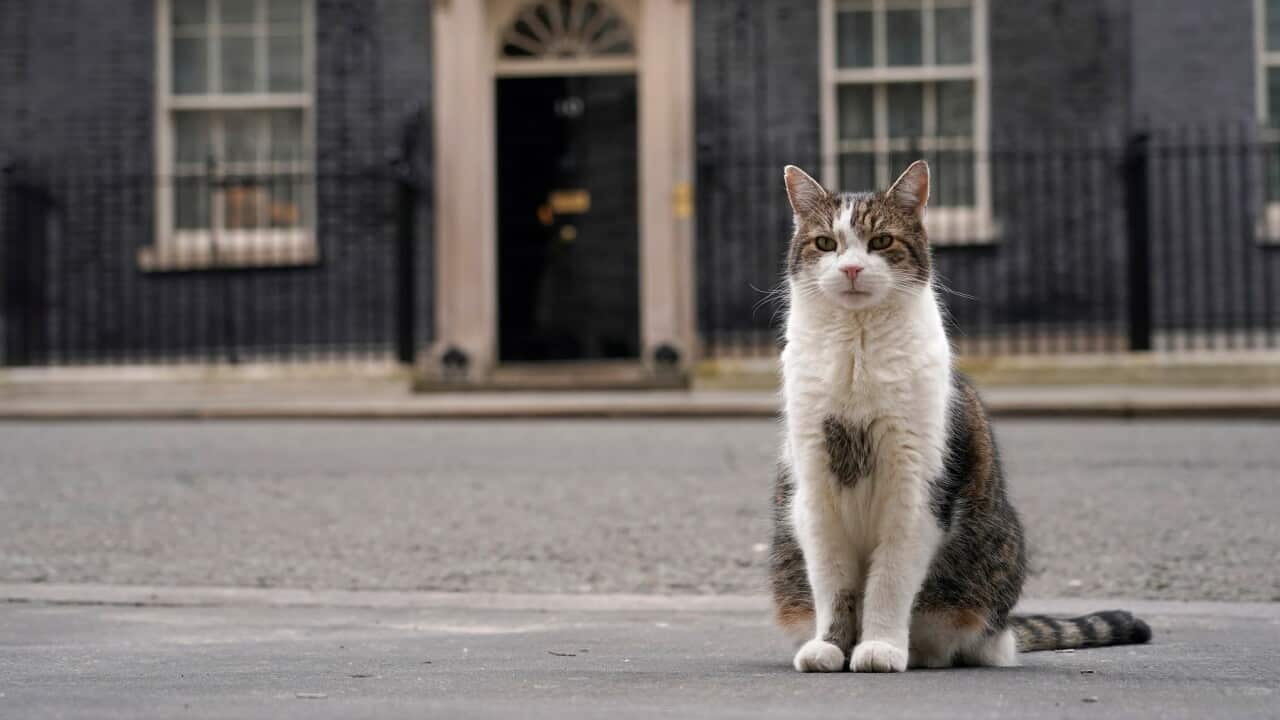Listen to Australian and world news, and follow trending topics with SBS News Podcasts.
TRANSCRIPT
It’s a crisp Sunday morning on Sydney’s northern beaches.
At the Tibetan Language and Culture School at Mackellar Girls' Campus in Manly Vale, the sound of prayer, drums, and the chatter of young students rehearsing a traditional dance fills the air.
Students are preparing for a special performance at the New South Wales Parliament, to honour the Dalai Lama’s 90th birthday on the 6th of July.
Student Phuntsok Dolma Tentso, explains how her classmates in Australia enjoy cultural freedoms denied to their peers in Tibet.
“The kids in Tibet, don't have the opportunity to go to Tibetan schools like us, they're forced into colonial boarding schools and integrated into Chinese lifestyles but here in Australia, we have the opportunity to learn our culture, religion and language, which I think is really important so we can continue the Tibetan cause."
For the students, it’s more than a dance.
It’s a way of connecting with an identity under threat.
"The 90th birthday is coming up for His Holiness, so we practise for about two months beforehand so we can perfect it. We are basically offering our dances and our songs to His Holiness, and that’s really a big thing for us. It’s also about connecting with young people, like myself, and learning the culture together. It’s just a different experience."
But while they celebrate, the future of Tibetan spiritual leadership remains deeply uncertain.
With The Dalai Lama about to mark his 90th birthday, the Tibetan spiritual leader says he’ll soon announce details of his reincarnation, a figure that traditionally carries immense political and cultural weight in the region.
But this next chapter is set to deepen tensions.
While the Dalai Lama insists his reincarnate will be born in the free world, Beijing continues to assert its authority, claiming it alone holds the power to choose his successor.
Zoe Bedford from the Australia Tibet Council warns that China’s efforts to control the succession process are fuelling widespread anxiety.
“The reason for such high anxiety is because we know that the Chinese government is trying to interfere with the reincarnation process for the next Dalai Lama.”
In his memoir, the Dalai Lama stated his successor would be born in the free world, signalling a reincarnation outside China’s control.
But Beijing insists that religious reincarnation must comply with Chinese law.
Kevin Carrico, a Senior Lecturer in Chinese Studies at Monash University, warns this could result in a dual succession: one backed by Tibetans, the other imposed by China, posing a serious threat to Tibetan unity.
“When the current Dalai Lama passes away, w e're looking at the very real possibility of a conflict between a sort of Tibetan chosen successor and a Chinese chosen successor. That would obviously create extreme tensions in Tibet and in global society more broadly."
He says that until China intervened, Tibetans independently handled reincarnation and succession.
“Ever since the incorporation of Tibet into the People's Republic of China in the 1950s despite various guarantees that there would be no interference in the political or religious systems of Tibet, it would be a dramatic understatement to say that there has been unprecedented interference in the political and religious systems of Tibet."
In 1995, following the death of the Panchen Lama, the second-highest Tibetan Buddhist figure, the Dalai Lama recognised a six-year-old boy as his reincarnation.
He was swiftly detained by Chinese authorities and has not been seen since.
Ms Bedford is concern about the safety of any future successor not aligned with Beijing.
“Of course, there will be great concern. If another person or an adult is chosen to be the successor of the Dalai Lama, there’ll be concern about their welfare. There’ll be concern about the actions of China—and, of course, the fear that China will repeat its actions with the Panchen Lama and try to instal some sort of fake Dalai Lama. The purpose of this would be to try to split the Tibetan people, divide their loyalties, delegitimise the role of the Dalai Lama in their lives, and confuse people—including the global movement of supporters around the world."
Traditionally, the Dalai Lama is identified after death, with monks seeking a child believed to be his reincarnation, guided by dreams, visions, and ritual tests.
Tenzin Gyatso, the current Dalai Lama, was born in 1935 and recognised at age two.
He fled Tibet in 1959 after a failed uprising against Chinese Communist rule.
Today, even the succession process is under scrutiny.
Here’s the Dalai Lama in 2019, making a controversial joke about the prospect of a female successor.
“If a female Dalai Lama comes, she should be more attractive.”
He later clarified the remarks, but the broader message was clear, he’s open to breaking from tradition.
That includes the possibility of ending the line altogether.
Kyinzom Dhongdue, a Tibetan human rights campaigner, says political pressure has forced this rethinking of tradition.
She explains that while the core principles haven’t changed, the circumstances around them have.
“In a way, it’s a fundamental break from the past. But it's not just, it's not so much the process is changing. It is a political reality that has forced us to protect the institution."
The President of the Tibetan Government in Exile, Penpa Tsering, is expected to visit Australia next month.
His message, like that of his people in exile, is clear - Tibet’s future lies not just in tradition, but in freedom.













